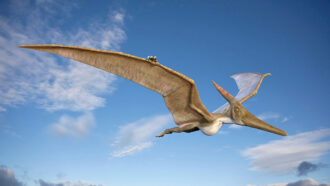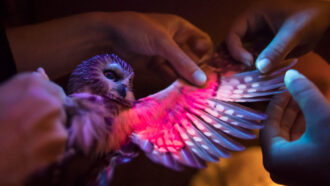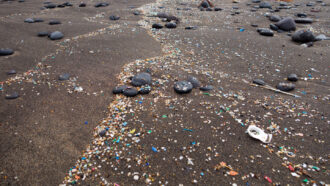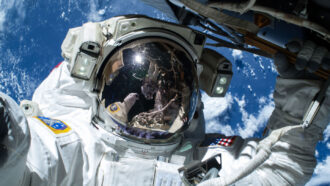
Maria Temming
Assistant Managing Editor, Science News Explores
Maria Temming is the Assistant Managing Editor at Science News Explores. Maria has undergraduate degrees in physics and English from Elon University and a master's degree in science writing from MIT. She has written for Scientific American, Sky & Telescope and NOVA Next. She’s also a former staff writer at Science News.

All Stories by Maria Temming
-
 Computing
ComputingScientists Say: Artificial intelligence
Artificial intelligence is technology smart enough to do tasks that would normally require human brainpower.
-
 Fossils
FossilsLet’s learn about pterosaurs
These ancient flying reptiles were not dinosaurs, but they were close relatives.
-
 Health & Medicine
Health & MedicineScientists Say: Infection
Infections range from mild illnesses, such as the common cold, to deadly diseases, such as rabies.
-
 Brain
BrainLet’s learn about creativity
By reading brain scans and eavesdropping on brainwaves, scientists are learning more about how creativity works.
-

-
 Chemistry
ChemistryScientists Say: Fluorescence
This property causes materials — including some animals’ skin, fur or feathers — to glow under light.
-
 Agriculture
AgricultureLet’s learn about eating bugs
Eating more insects, rather than pork, beef or other kinds of meat, may be better for the planet.
-
 Brain
BrainScientists Say: Glymphatic System
The glymphatic system bathes the brain in cleansing fluids during sleep and clears away harmful cellular waste.
-
 Math
MathScientists Say: Mean, median and mode
Mean, median and mode are all different ways to describe the middle value in a dataset.
-
 Materials Science
Materials ScienceLet’s learn about microplastics
Microplastics have turned up everywhere from the highest mountains to the bottom of the ocean — and even inside animals and people.
-

-
 Psychology
PsychologyWhy fandom feels good — and may be good for you
Psychologists and media scholars are looking into the who, why and how of becoming a fan.